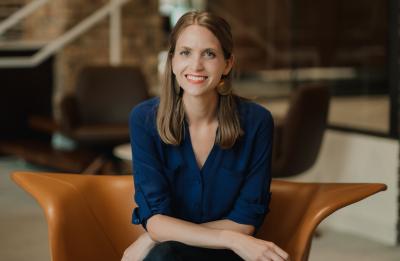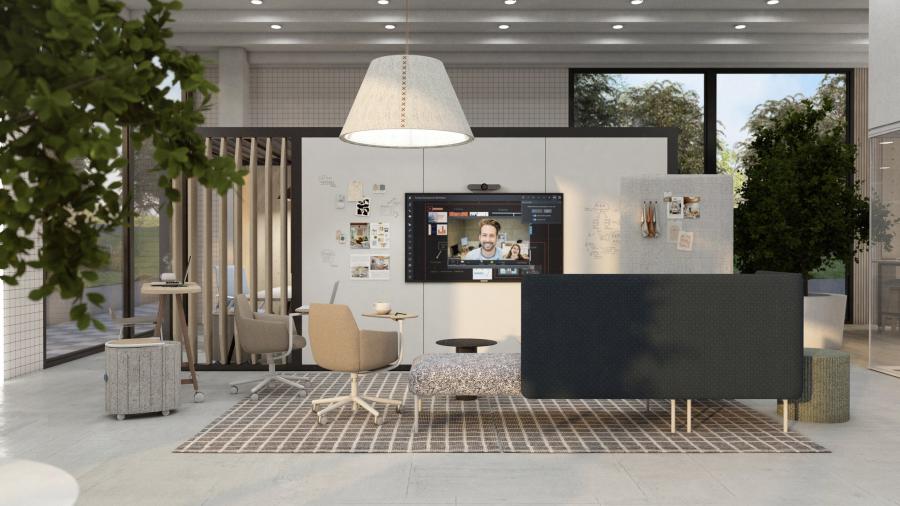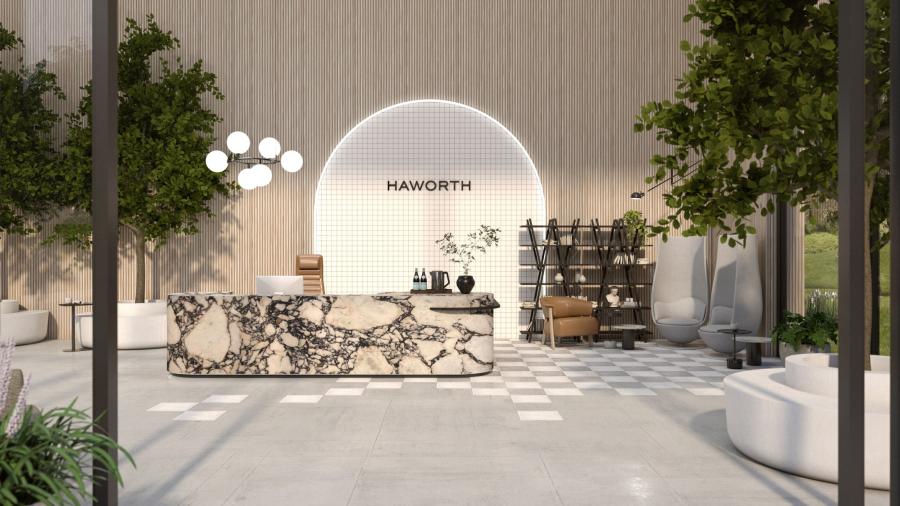It’s a new day for the office space as companies emerge from the COVID-19 pandemic and a new normal emerges.
University of Wisconsin-Stout alum Caitlin Wolff, of St. Paul, a social spaces specialist with the global furniture company Haworth, sees it as an opportunity for companies to create collaborative, yet flexible spaces for employees.
Wolff spoke virtually recently as part of the School of Art and Design Speaker Series.
Over the past 18 months, people have learned they can work from home but miss the office, Wolff said.
“When we are with other human beings we are engaged differently,” said Wolff, a 2010 Bachelor of Fine Arts interior design graduate. “We all know we can work from home, and home offices have become more accepted.”
For the immediate future, Wolff believes office spaces should be flexible with less density. “Our bubbles are different than they were before,” she said.

There should be spaces set aside with immersive technology to allow for teams to meet both in person and virtually. The furnishings in those spaces should let people see and hear each other, allowing everyone to feel equal in the workspace, regardless of where they are.
Office space should be designed for collaboration. “The reason we want to go to the office is to see other people and want activated collaborative spaces,” Wolff said. “People may not be assigned workspaces. There would be drop-in workspaces. The office becomes the center of connection and culture for the organization.”
More group spaces would be available for collaborative work. “There will be less individual space because we know people can do that at home,” she said.
With individual offices less common, there would be project rooms with furniture that’s easy to rearrange to fit the needs of those using them on any given day.
Because many people have been working from home with more control over their environments, including lights, sounds and heat, returning full time to an office might feel intimidating and overstimulating.
Restorative spaces with gardens or with more casual seating or a café setting could become more common, Wolff said. “These are the places you go to have face-to-face human interactions,” she noted.
One of her goals is to build spaces that people feel comfortable and human in, allowing people to have their personal space.

At Haworth, Wolff speaks about social spaces -- the places where people gather, connect and restore in corporate environments, health care, hospitality, higher education, community spaces, etc.
Having flexible spaces that employees feel comfortable in can help retain and attract talent, she noted.
“There is no time like now,” Wolff said. “People are expecting their offices to look different. Employees are picking up and moving to employers who fit their ethos.”
Wolff credited UW-Stout with helping her be ready for her career.
“I can attribute many of my career and networking advancements to being a UW-Stout alum, either by speaking with a fellow alum or a fan of the quality of education and the interior design program’s phenomenal reputation in the Minneapolis design industry,” Wolff said.
Wolff offered this advice to students:
“Your college experience is full of wonderful memory-making and ridiculously fun distractions. Enjoy those distractions, but don’t forget what you’re there for and what you’re working toward. Explore your passions, find your niche, develop a strong sense of who you are and where you want to go and don’t be afraid to show that to everyone you encounter. You’ll never know who you might speak to that can advance your career path next.
“As a student, you have a choice to make: You can choose to put all of your time and energy toward your degree, your projects, staying up all night to make it just right that will make your portfolio stand out, make it something you’ll be proud to share with a prospective employer. I hope students will make that choice to invest in their futures, without forgetting to have a bit of fun.”

Professor Shelley Pecha, program director of interior design, called Wolff’s design options amazing. “I used to design offices,” Pecha said. “It was nothing like this. It was a sea of cubicles that all looked the same and you had a small meeting room and a big meeting room. This is super exciting.”
Assistant Professor Ellie Nikoo, design department, said she sees the advantage of having more personal space, particularly in classrooms, to meet the needs of different students. “It would meet different personalities and is very interesting,” Nikoo said.
The UW-Stout interior design program is accredited by the National Association for Schools of Art and Design and by the Council for Interior Design Accreditation. The program prepares students for entry-level interior design practice, for advanced study, and to apply for membership in professional interior design organizations. The program also makes students eligible for the National Council for Interior Design Qualification.




